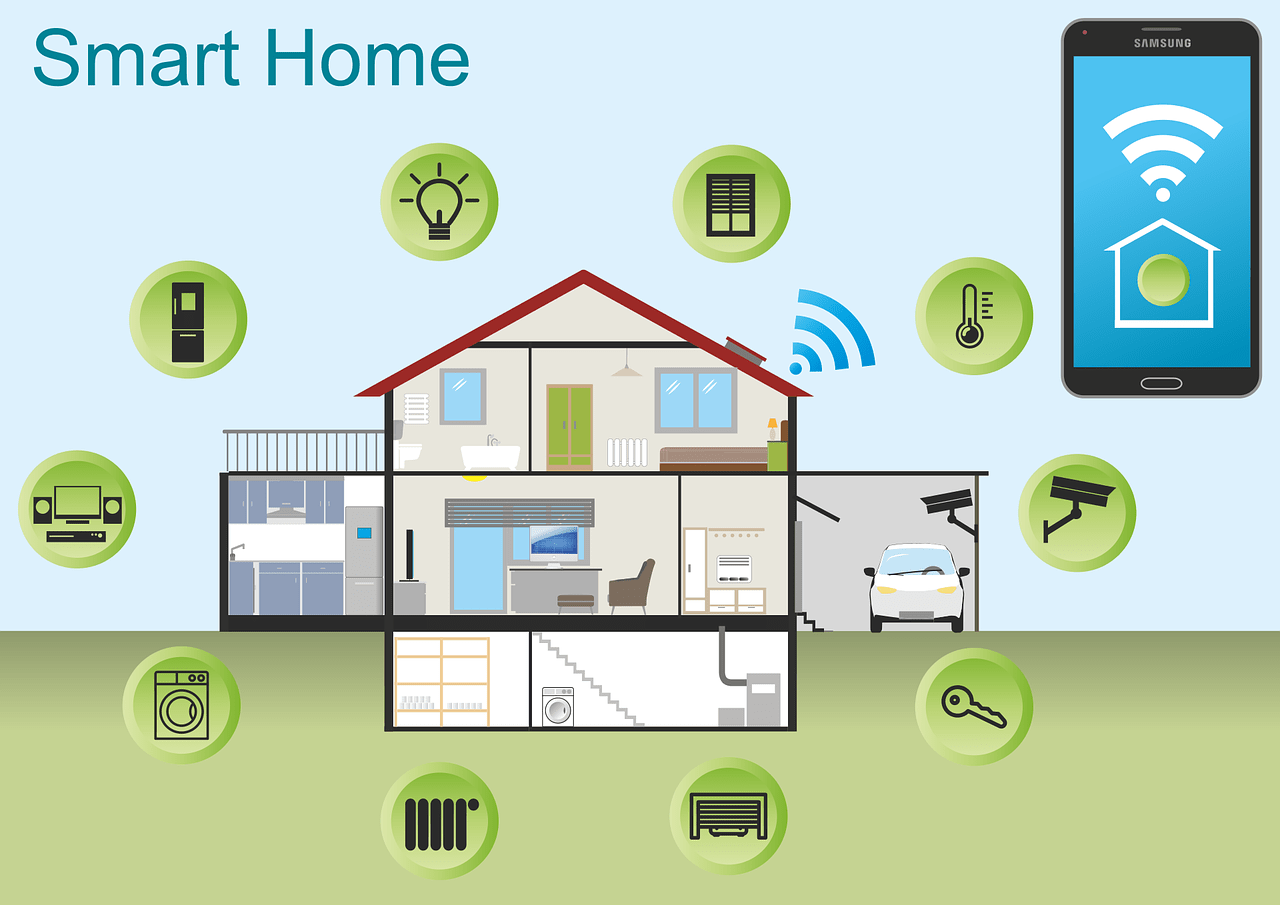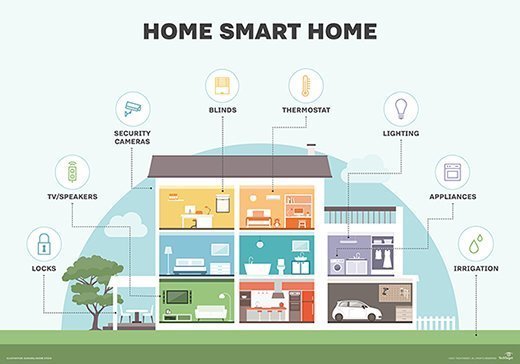Smart Homes

What Is A Smart Home?
A smart home alludes to a convenient home arrangement where appliances and gadgets can be automatically controlled from a distance from anyplace with an internet connection utilizing a mobile or other networked device. Devices in a smart home are interconnected through the web, permitting the user to control functions, for example, security access to the home, temperature, lighting, and a home theater from a distance.
How Does a Smart Home Work?
A smart home's devices are associated with one another and can be accessed through one central point—a smart-phone, tablet, PC, or game console. Entryway locks, TVs, thermostats, home screens, cameras, lights, and even appliances, for example, the fridge can be controlled through one home automation system. The system is introduced on a portable or other networked device, and the user can make time schedules for specific changes to take effect.

Advantages of Smart Homes
- Increase in Convenience
- Full Control Of All Smart Appliances With Only One Device
- Time Savings
- Higher Quality Of Life
- Notifications In Case of Problems
- Energy Savings
- Cost Savings In The Long Run
- Customizable To Your Needs
- Safety Improvements Compared To Conventional Locks
- Insurance Benefits
- Tax Benefits For Going Green
- Support For The Older Generation
- May Be Suitable For Disabled Persons
- Resale Value May Increase
- Fun For Children To Play Around
Disadvantages of Smart Homes
- Significant Installation Cost
- Reliable Internet Connection is Crucial
- Security Issues
- Technological Problems in Connected Homes
- May Lock Yourself Out Of Your Home
- Helplessness If Technology Fails
- Compatibility Problems Between Devices
- Surges Are Possible
- Technology Might Become Outdated
- Privacy Concerns

